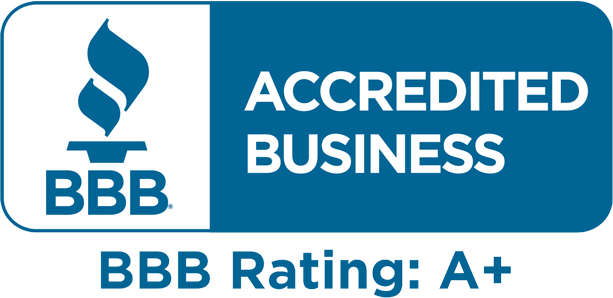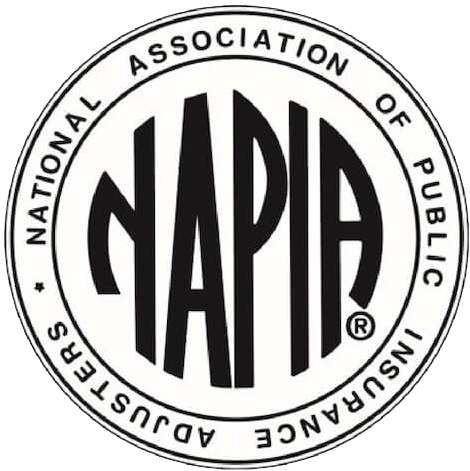How to Deal with a Home Insurance Adjuster from the Insurance Company
Dealing with a home insurance adjuster is a normal part of making an insurance claim after a loss. If you’ve never dealt with a claims adjuster, however, then the process can be intimidating. Is the adjuster waiting for you to make a mistake? Are there ways to maximize the payout from your insurance company? What items can you expect to be covered? What happens if you get a lowball estimate from a home insurance adjuster?

We’re helping provide answers for these questions and more with some of our best home insurance claim tips and how to deal with an insurance adjuster from your insurance company.
What is a Home Insurance Adjuster?

When you file a home insurance claim, your insurance company dispatches someone to your location to assess the property and cause of loss, calculate damage, and help decide on the next steps for processing your claim. That person is an insurance adjuster.
Your insurance company hires adjusters to manage claims. These adjusters are either salaried employees of the insurance company, or independent contractors working on behalf of insurance companies. The home insurance adjuster sent to your home is specially trained to process your claim, using specialized software to analyze damage, determine what’s covered, and calculate your claim settlement.
When you make a claim, you’ll likely need to communicate frequently with your insurance company’s adjuster and they are often your main point of contact at the insurance company.
Insurance company adjusters may also go by titles like analyst or representative. Whatever an insurer calls the adjuster, the adjuster plays a similar role and their main goal is far too often the same: to evaluate your claim and close it as quickly as possible, typically with the lowest claim settlement possible. This often results in homeowners disagreeing with the insurance adjuster and suspecting the home insurance adjuster’s estimate is too low.
If you need help dealing with an insurance adjuster or getting a fair assessment and settlement for your claim, a licensed Public Adjuster can provide crucial expertise and assistance.
Insurance Company Adjusters vs. Public Adjusters
There are two broad types of insurance adjusters in the property insurance claim world. Here’s the difference between an insurance company’s adjuster and a public adjuster:
- An insurance company adjuster is either an employee of your insurance company or working as an independent contractor for your insurance company. They are directed by, and representing your insurance company, and their main objective may be to resolve your claim as quickly and cheaply as possible.
- A public adjuster is an insurance industry professional who works for policyholders – not insurance companies. Public adjusters want to help increase claim settlements and overturn claim denials to help policyholders obtain the fair compensation they deserve. They analyze your claim and assess damage, then manage your claim from start to finish to help achieve the best possible outcome.
Understandably, the two adjusters have different goals, making it an adversarial relationship. Fortunately Public Adjusters offer free initial claim reviews and consultations to see if they are a good fit to help with your claim.
You and Your Insurance Adjuster Might Have Different Goals
Insurance company adjusters may be friendly. However, you and your insurance company might have different goals:
- Your insurance company adjuster acts on behalf of your insurance company. They represent your insurance company and the ultimate goal may be to protect their employer’s bottom line. They may be focused on resolving your claim quickly and pay you as little as they’re legally obligated to pay. They often don’t have the final say in what is ultimately covered under the claim. Especially when they are subcontractors for the insurance company. In this instance, they are there to take photos and measurements and then someone at the office makes decisions on coverage.
- As a homeowner or policyholder, you have a different goal. You want to resolve your claim quickly, but you want to receive every penny you are rightfully owed by your insurance company. You pay money for insurance to be there when the unexpected happens, and undoubtedly want your insurer to pay you what you’re owed.
Insurance company adjusters may be friendly – but they’re not on your side. They represent your insurer and their real duty is to your insurer’s best interests. Even if they’re friendly and personable, that does not mean they are acting in your best interests. In the last few years they have lost most of their decision making capabilities.
How to Negotiate with Your Insurance Company’s Adjuster
Unfortunately, working an insurance claim settlement is often a type of negotiation. You want as much money for your claim as possible, and your insurer wants the opposite.
You may not be an expert negotiator – especially if you have limited insurance claim experience. Many people are intimidated by negotiating with a home insurance company adjuster. However, many home insurance companies may offer a low initial settlement, expecting that the policyholder may push back and negotiate, hire a public adjuster, or simply accept the low offer.
Fortunately, we can help. We are expert insurance claim negotiators.
Schedule a Free Consultation
Tips for Dealing with a Home Insurance Adjuster
Here are some of the best tips to remember for negotiating and dealing with your insurance adjuster:
- Avoid giving the adjuster a recorded statement.
- Avoid speaking to the adjuster unless necessary, and consider having a friend or, better yet, your lawyer or public adjuster assist when speaking with insurance adjusters.
- Avoid signing any documents from the insurance adjuster until you have reviewed and fully understand everything it contains.
- Don’t settle your insurance claim too quickly.
- Consider hiring a public adjuster or an attorney if negotiations are stalled or if you believe your insurance company is acting in bad faith.
- Remember that what you say can hurt you; insurance adjusters have a long history of negotiating claims with clients, and a single recorded statement can impact your final insurance payout (this is more common for personal injury claims and car accident cases, but it can also be a problem in homeowners insurance cases).
- Don’t go overboard with your negotiation tactics; when the adjuster is from your own insurance company, then you’re required to cooperate with that adjuster.
- If the payout offer from your insurance company seems unreasonably low, then ask questions for further justification on the low settlement amount; ask them to itemize the damages and provide the facts behind their numbers.
- Once a settlement is finally reached, make sure you get that settlement in writing; an adjuster might promise one thing during negotiations, then flip back to a previous offer for the final settlement.
2 Advantages For Policyholders Dealing with an Insurance Adjuster
Don’t be intimidated when working with your insurance company’s adjuster.
You may have different goals from your insurance company’s adjuster, but in some ways you also have the upper hand.
As a policyholder, you have two significant advantages over your insurance company, including:
Advantage #1: Your Insurer Must Act in Good Faith
Insurers are legally obligated to act in good faith.
State insurance laws require your insurer to process your claim in a timely manner, cover damage per the terms of your insurance contract, and meet other obligations.
If your insurer is dragging its feet, intentionally stalling, or denying or reducing your claim without good reason, they may be acting in bad faith.
Advantage #2: You’re Dealing with One Claim, Your Insurer is Dealing with Multiple Claims
The average insurance adjuster juggles multiple claims at once. They rarely focus on one claim.
You, on the other hand, only have one claim you care about: your own claim. This gives you an enormous advantage.
Be the expert of your own claim, then use this expert knowledge to your advantage when negotiating with your home insurance company’s adjuster.
What Happens When Negotiations Fail?
In a perfect world, your home insurance adjuster would offer a fair and reasonable settlement based on the damage to your home, and you would accept that offer and move forward with restoration, recovery and repairs.
Unfortunately, the claim process and dealing with the insurance adjuster can quickly get messy. Your insurer may deny certain damages or compensation, for example. They could argue some damage was pre-existing and isn’t covered by insurance, for example, or that your high-end TV is only worth $150 because of depreciation.
It is quite common that policyholder’s disagree with the insurance company adjuster and feel the insurance adjuster’s repair estimate or settlement offer is too low. Eventually, you could reach a standstill with your insurer. Here’s what happens when negotiations fail:
- Most insurance contracts have a formal dispute process. If you’re unhappy with the outcome of your claim, then you can request a review of your claim. A separate adjuster or a senior member of the insurance company can review your claim in an attempt to resolve it.
- If you’re unhappy with your insurer’s initial review, then you might escalate your complaint. Insurance contracts have appraisal and arbitration clauses for situations like this. You could consider invoking appraisal for disputes over the amount needed for repairs.
- Many policyholders also hire a public adjuster. A public adjuster represents your best interests – not your insurer’s best interests. They negotiate with your insurer on your behalf, fighting to ensure you receive the amount of compensation you rightfully deserve from your insurance claim.
Hire a Public Adjuster for Help Dealing With Insurance Adjusters
Many policyholders hire a public insurance adjuster to manage the claims process. A public adjuster is an insurance professional that works on your behalf – similar to how the insurance company’s adjuster works on the insurer’s behalf.
A good public adjuster fulfills the following roles:
- Works diligently to manage your insurance claim from beginning to end
- Fights to secure the maximum compensation possible per the terms of your insurance contract
- Negotiates with your insurer on your behalf
- Organizes your claim documentation and presents conclusive facts to your insurance company
- Helps you navigate complex insurance claims while representing your best interests – not your insurer’s bottom line
Overall, public adjusters have the expertise needed for complicated insurance claim situations and dealing with insurance adjusters from the insurance company. They also know the secret tactics used by insurance adjusters and insurance companies to lower settlement offers.
Schedule a Free Consultation with a Public Adjuster Today
Overwhelmed dealing with your insurance company? Consider hiring a public adjuster.
Save time and money while speeding up your insurance claim. Hiring a public adjuster shows your insurance company’s adjuster you won’t be pushed around.
Contact ClaimsMate today for a free consultation with a public adjuster.






